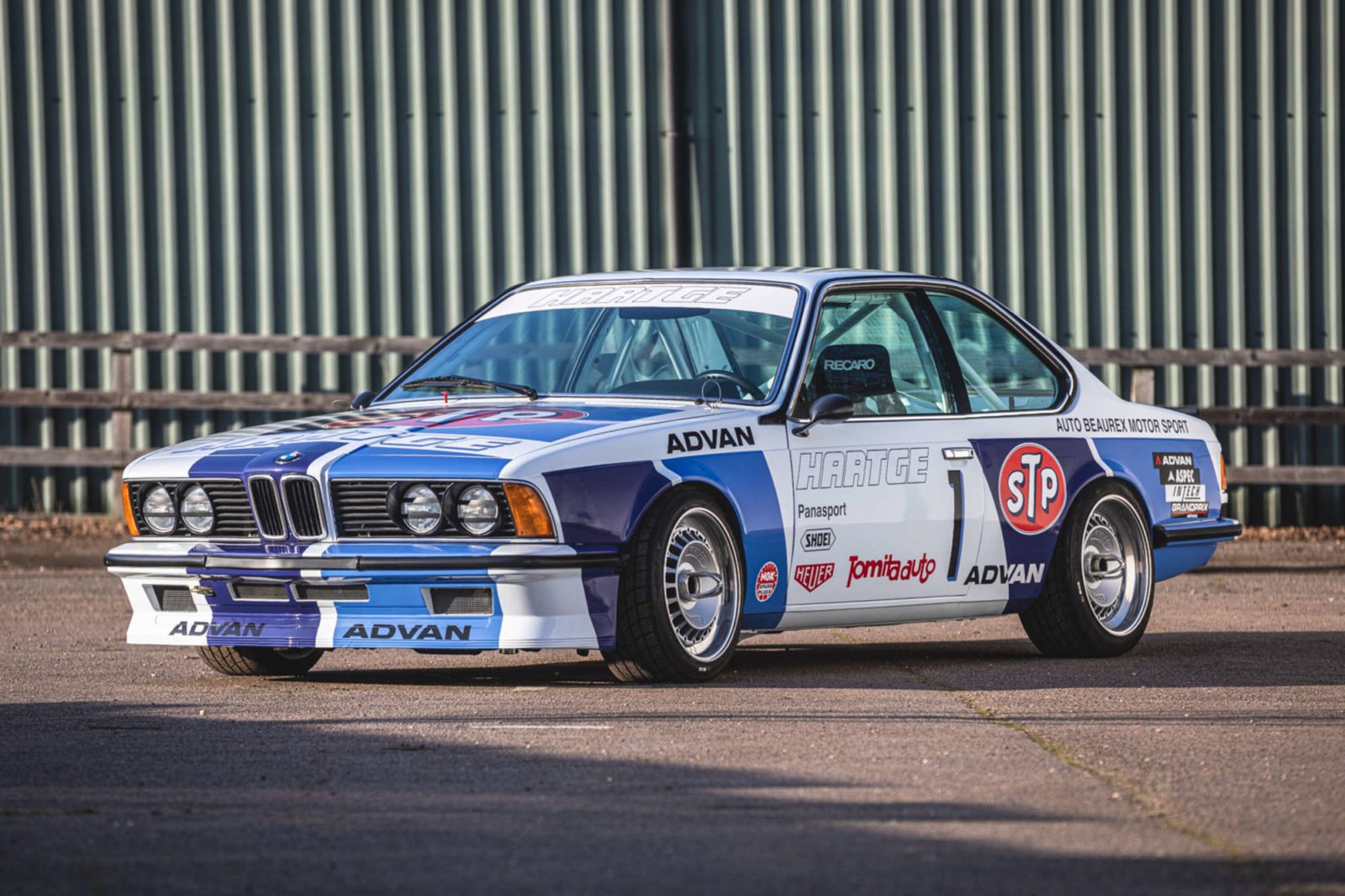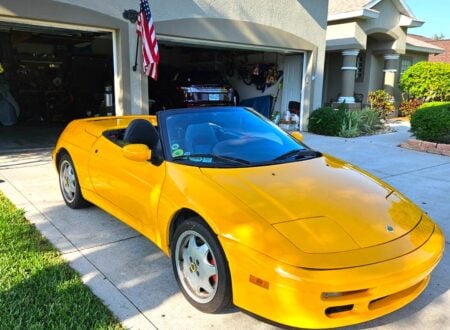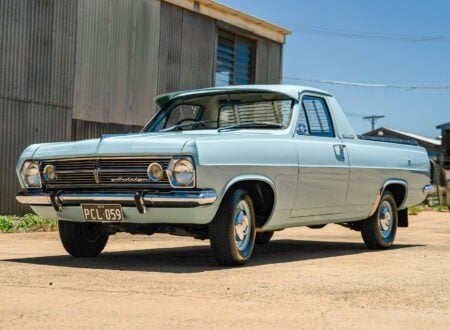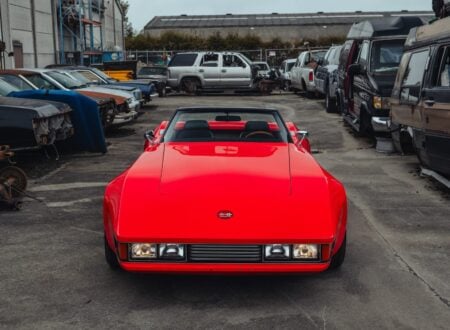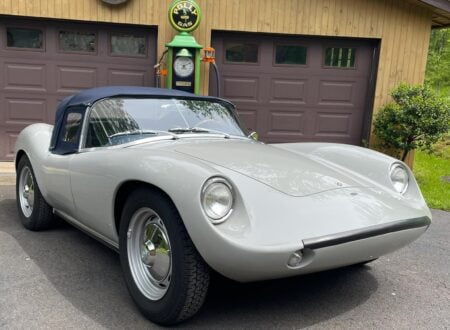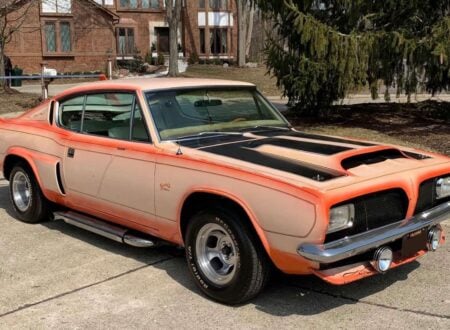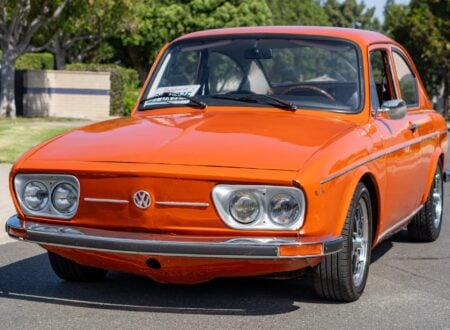This is an FIA Group A BMW 635 CSi, this model series was built in the mid-1980s by BMW Motorsport with input from Alpina, specifically to take the fight to BMW’s competitors in the hotly contested world of touring car and GT racing.
The 635 CSi quickly became a dominant force on the race tracks of Europe, as well as Japan and Australia, winning a slew of championships and forever embedding the BMW 6 Series into motor racing history.
Fast Facts – An FIA “Group A” BMW 635 CSi
- The BMW 6 Series, known as the E24, was released in 1976 and sold until 1989. A variety of engines were fitted to the car depending on the specific model and year, all engines were some variation of an inline-six cylinder.
- The BMW E24 was styled by Paul Bracq, a celebrated French automobile designer who worked at Mercedes-Benz, BMW, Citroën, and Peugeot over the course of his career.
- The “Group A” BMW 635 CSi was build by the BMW “M” Motorsport division, with some assistance from BMW specialists Alpina. The M30 engine is now capable of 320 bhp, up from the 220 bhp in the standard road car.
- The car you see here was built in 1984 for Group A, it was originally raced in period by Fritz Moller in the DTM (Deutsche Tourenwagen Masters, or German Touring Car Masters), as well as the Spa 24 Hours (3 wins), the 24 Hours Nürburgring (2 wins), the RAC Tourist Trophy (2 wins), and many more.
The BMW E24 6 Series – The “Sharknose”
Shortly after its introduction the E24 6 Series was nicknamed the “Sharknose” by enthusiasts due to its front end and shark-like some profile. The car was a direct replacement for the outgoing BMW E9, one of the most beloved BMWs of all time and a car that, in racing trim, had been nicknamed the “Batmobile.”
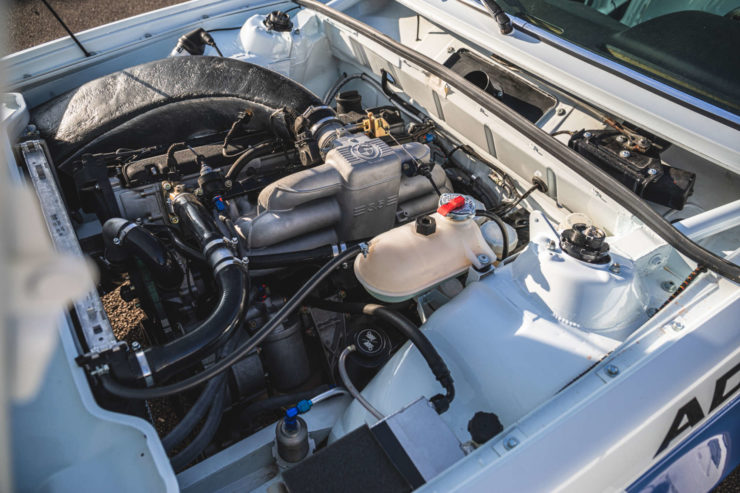

Though the E24 had large shoes to fill, it didn’t disappoint. The modern styling by Paul Bracq won the car legions of fans, and the luxuriously appointed interior combined with excellent performance potential made it one of the best GT cars of its time.
The ultimate road-going version of the E24 is undoubtably the BMW M635CSi, as well as the BMW M6 in the United States. The M635CSi was given a range of suspension, braking, and chassis upgrades but the true pièce de résistance lay under the hood – it was fitted with the BMW M88 engine first used in the mid-engined BMW M1 supercar.
The similar BMW M6 was destined for the North American market, though it was fitted with the less exotic (and less powerful) BMW S38 engine, producing 256 bhp vs the 282 bhp in the M88 equipped M635CSi.
Ultimately the BMW E24 would stay in production from 1976 until 1989, a testament to the design by Bracq that remained current for the model’s entire production run. It would be BMW’s longest lasting production series.
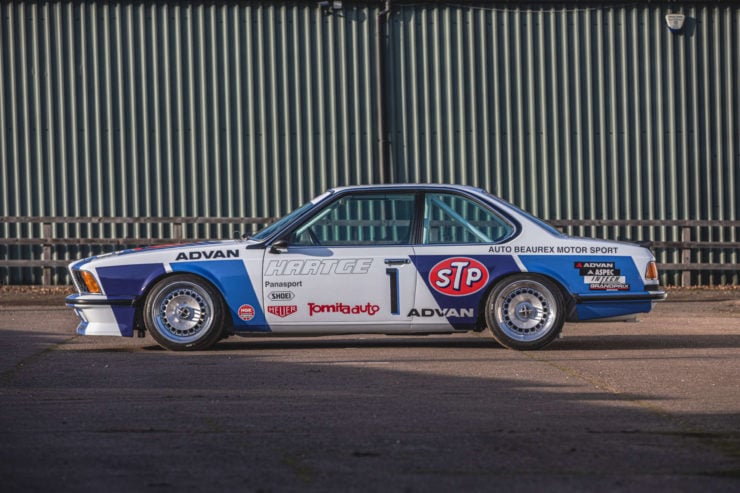

The FIA “Group A” BMW 635 CSi
The FIA “Group A” BMW 635 CSi was built by BMW Motorsport for top level touring car racing in Europe and around the world.
Each car started out as a normal 635 CSi, fitted with a 3.4 liter M30 inline-six cylinder engine mated to a 5-speed manual transmission. By the time the BMW M engineers were done with it it had all new suspension, brakes, a full roll cage, a stiffened chassis, and a significantly upgraded version of the M30 engine, now producing 320 bhp – 100 bhp more than the original road car.
Many examples of the Group A BMW 635 CSi led difficult lives at the pointy end of various touring car and GT grids around the world. As a result many were damaged beyond repair, some were scrapped when their values were low, and others were parted out.
Over the course of the competitive life of the model it was a remarkably dominant force in both touring car and endurance racing. It won the 1983, 1985 and 1986 24 Hours of Spa-Francorchamps as well as the European Touring Car Championship title in 1981, 1983, and 1986.
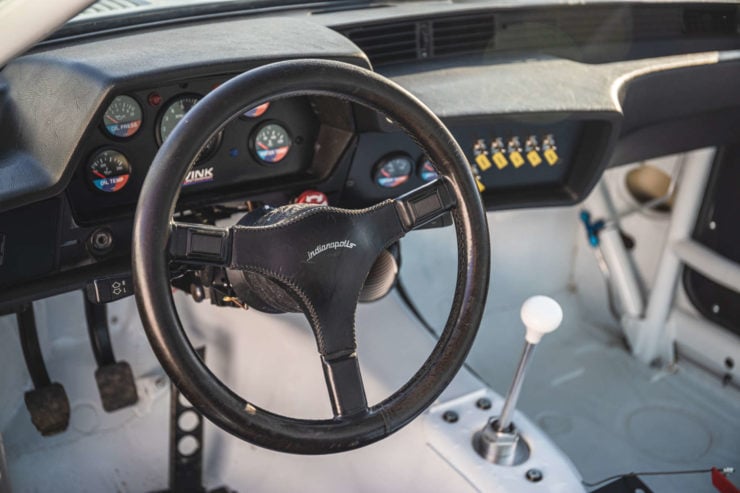

It also won the 1984 and 1985 Nürburgring 24 Hours, the German Production Car Championship, the 1984 Belgian Touring Car Championship, the 1985 Australian Touring Car Championship, the 1985 and 1986 Australian Endurance Championship, the 1985 Australian Manufacturers’ Championship, the 1985 AMSCAR Series title, the 1985 European Hill Climb Championship, the 1985 and 1987 New Zealand Touring Car Championship, the 1985 Japanese Touring Car Championship, and a significant number of other victories.
The 1984 FIA “Group A” BMW 635 CSi Shown Here
The car you see here was delivered new to Herr Fritz Möller who raced the car in a number of DTM events as well as the Spa 24 Hours and the 24 Hours Nürburgring between 1984 and 1986.
After this time the car ended up in private hands, during a restoration in 2012 it was badly burned in a workshop fire. After consulting the BMW body experts at Matter Motorsport it was decided to re-shell the car, and return it back to the specification it was in when it was delivered new by BMW back in 1984.
The engine was rebuilt by Bosch Tuning and now produces 320 bhp and 400Nm of torque, the gearbox and limited-slip differential have been rebuilt, and all new suspension and brakes were fitted.
Since its completion the car has only been raced once, in the Peter Auto Series. It was leading by 25 seconds but a spin during a rain spell caused the car to finish in second place. It’s now being offered for sale accompanied by a set of six wheels and its FIA HTP (valid until 31/12/2030).
If you’d like to read more about this car or register to bid you can click here to visit the listing on Silverstone Auctions.
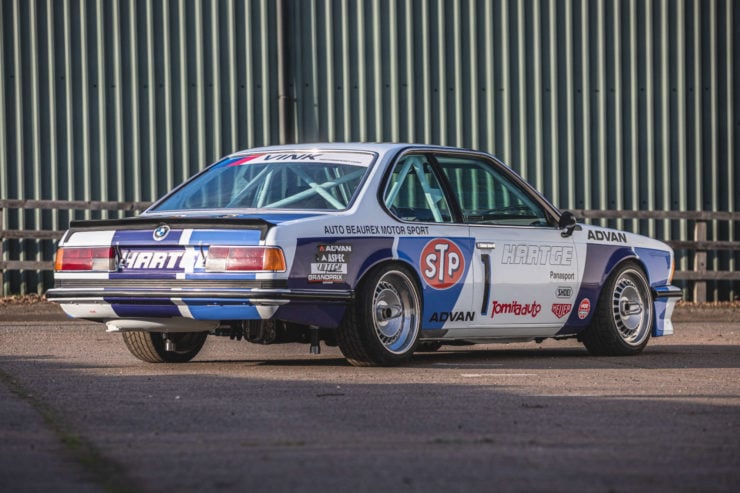
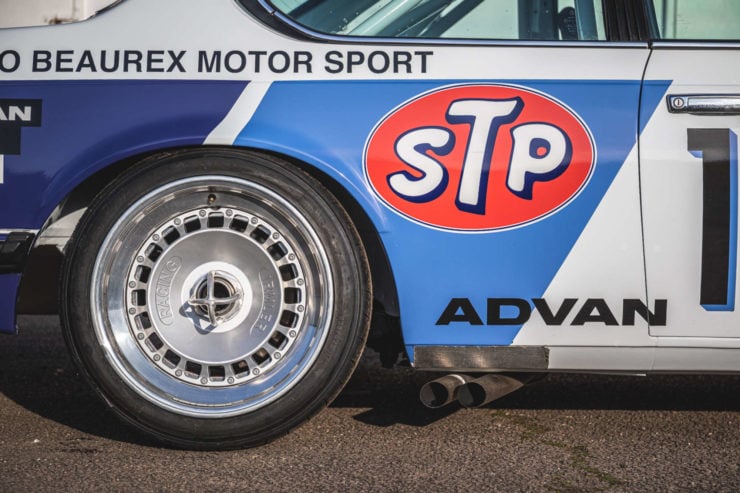
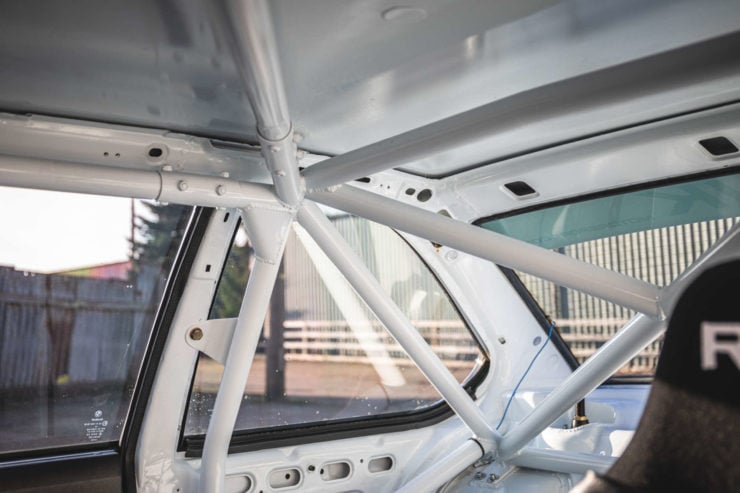
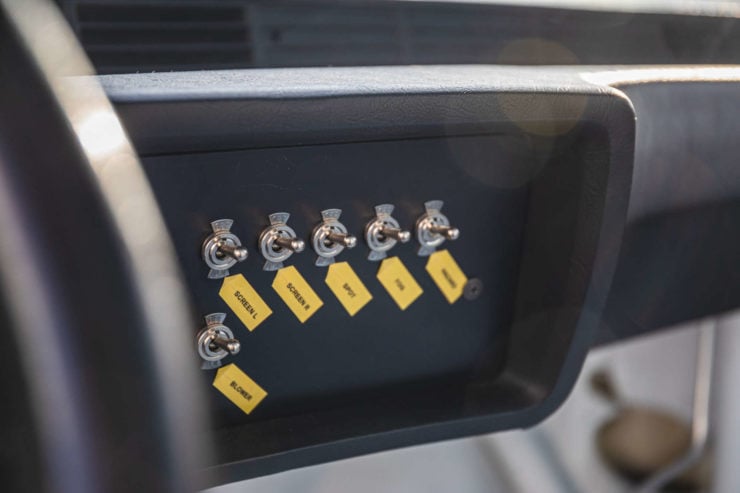
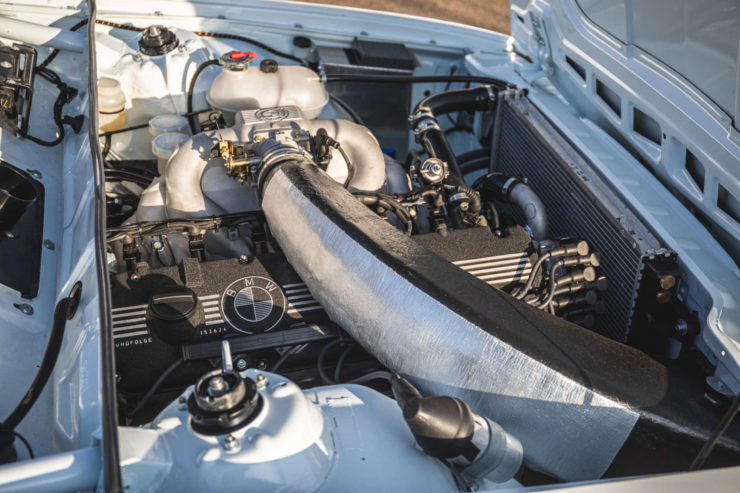
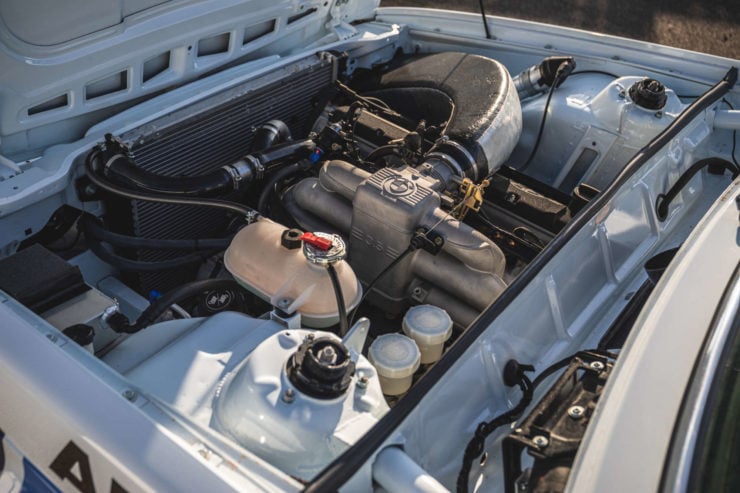
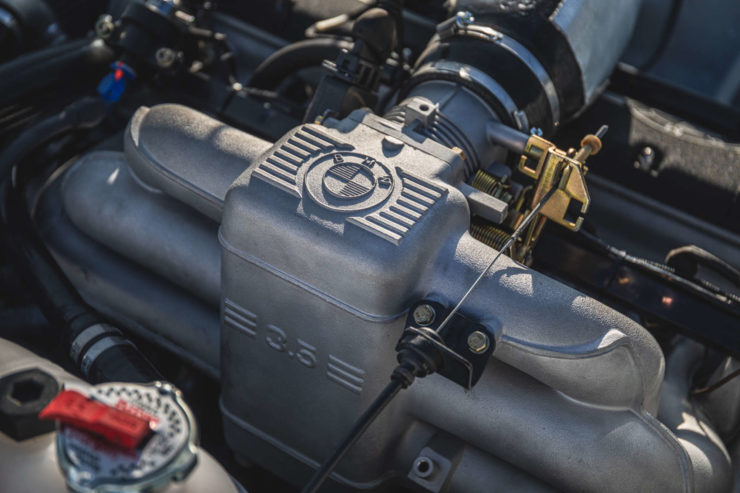
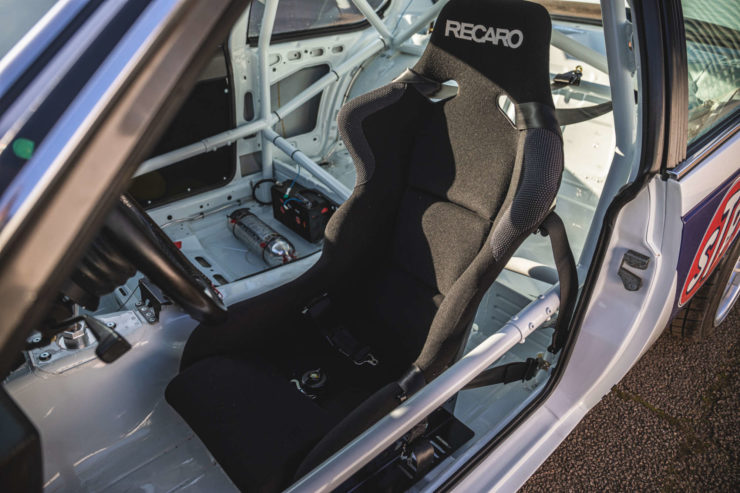
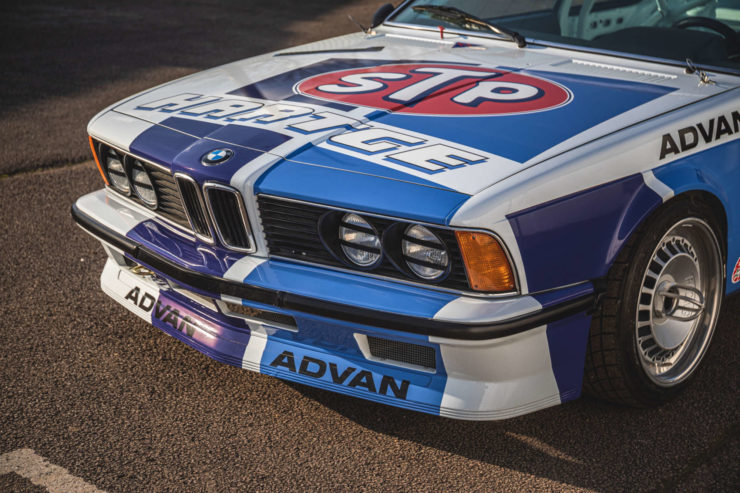
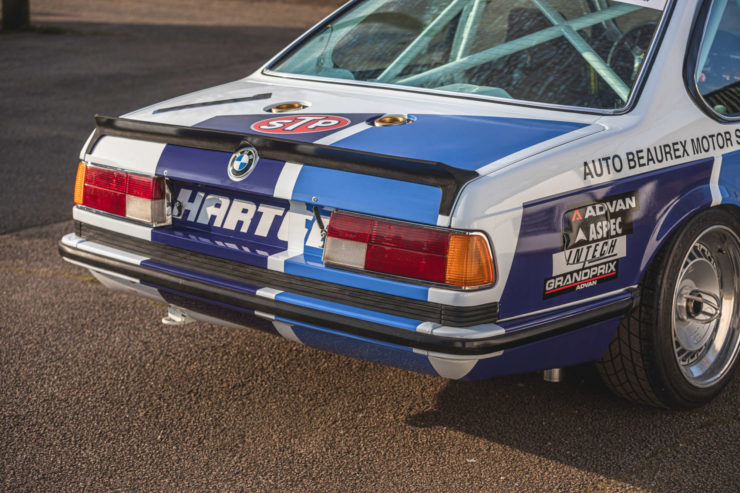
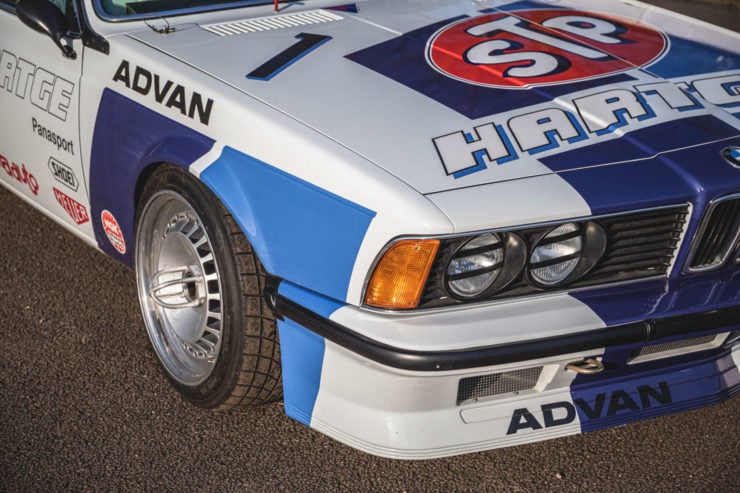
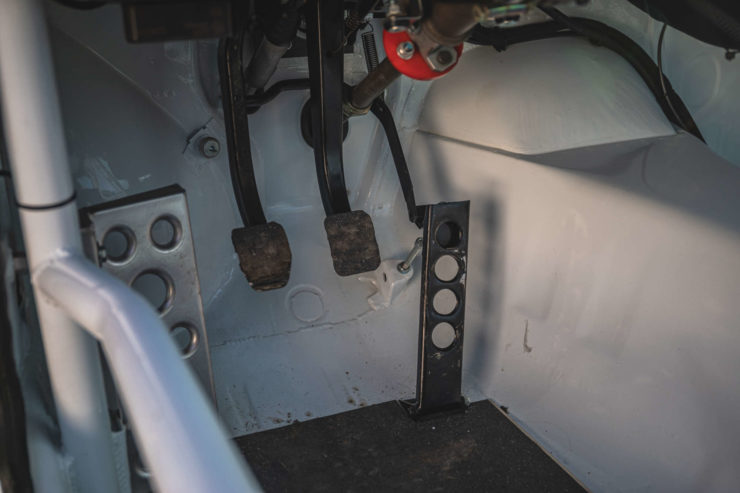
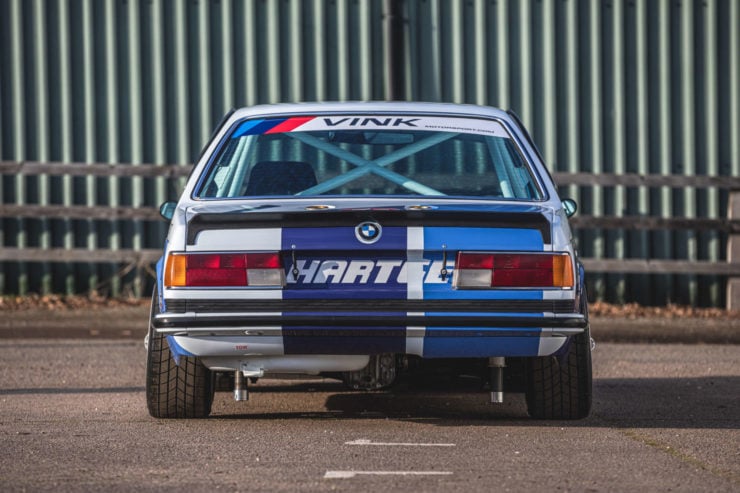
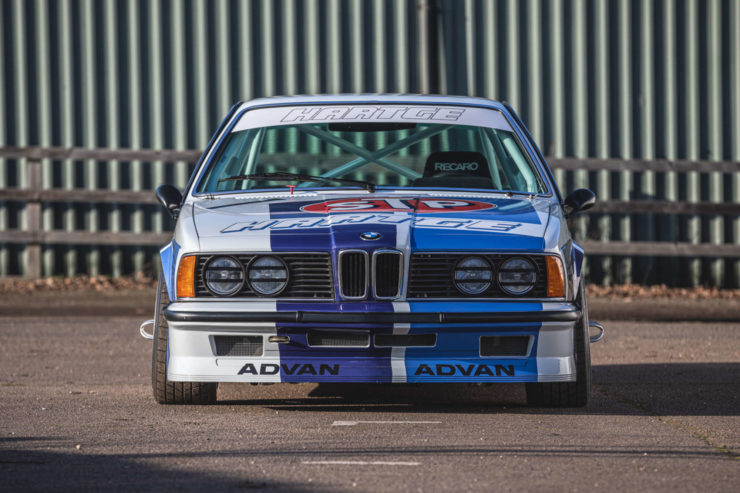
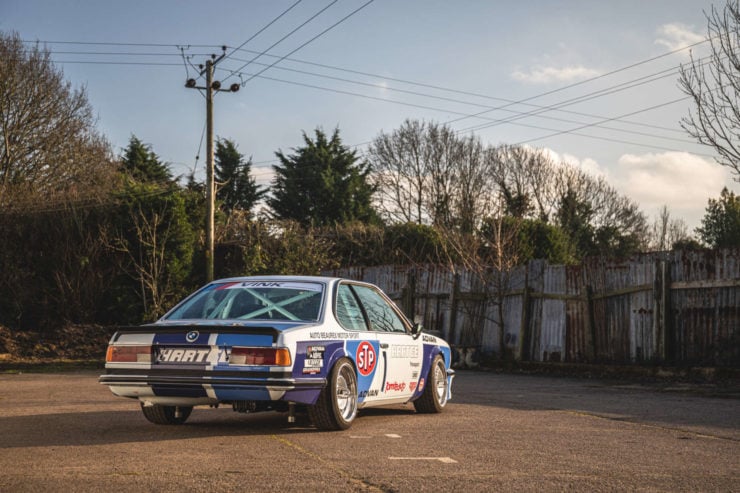
Images courtesy of Silverstone Auctions

